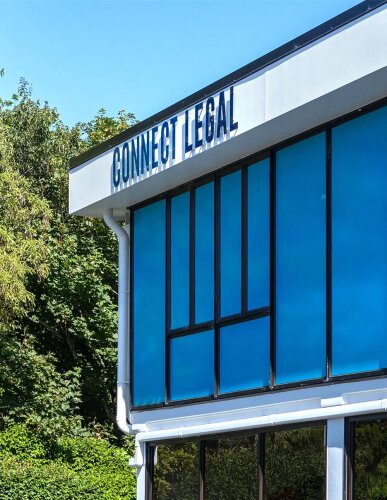Best Franchising Lawyers in New Plymouth
Share your needs with us, get contacted by law firms.
Free. Takes 2 min.
List of the best lawyers in New Plymouth, New Zealand
About Franchising Law in New Plymouth, New Zealand
Franchising is a popular business model in New Plymouth and across New Zealand. It allows entrepreneurs to operate their own business while leveraging the established brand, systems, and support of a larger franchise network. In New Plymouth, franchising touches many sectors, including hospitality, retail, health, and services. While franchising is an attractive option, it comes with its own regulatory requirements and legal nuances. New Zealand does not have specific franchise legislation, but other laws and regulations still apply and must be navigated carefully. Both franchisees and franchisors must understand their rights and obligations to avoid disputes and ensure business success.
Why You May Need a Lawyer
Legal help is valuable at several stages of franchising. You may require a lawyer in the following situations:
- Reviewing or drafting franchise agreements to ensure your rights are protected
- Understanding your obligations under the franchise system
- Negotiating terms of renewal, transfer, or termination of your franchise
- Resolving disputes with franchisors or franchisees
- Ensuring compliance with consumer and commercial laws
- Assessing risks associated with property leases or business premises
- Dealing with employment law issues when hiring staff
- Receiving advice about intellectual property and brand use within the franchise
- Handling any changes in business structure or ownership
- Guidance when expanding your franchise or becoming a franchisor
Engaging a lawyer early can help prevent costly mistakes and provide peace of mind for both franchisees and franchisors.
Local Laws Overview
While New Plymouth does not have franchise specific legislation, several local and national laws regulate the franchising industry:
- Contract Law: Franchise agreements are legally binding contracts and are subject to New Zealand’s Contract and Commercial Law Act 2017.
- Fair Trading Act 1986: Prohibits misrepresentation and unfair trading practices. Franchisors must provide accurate and honest information to franchisees.
- Commerce Act 1986: Prevents anti-competitive behavior, such as price fixing or exclusive dealing between franchisors and franchisees.
- Consumer Guarantees Act 1993: Relevant when goods or services are sold to consumers within the franchise.
- Employment Relations Act 2000: Applies if you employ staff within your franchise operation.
- Intellectual Property Laws: Franchises often depend on copyright, trade marks, and other IP laws to protect brand integrity.
- Leasing and Property Laws: If operating from commercial premises in New Plymouth, leasing arrangements must comply with local property laws.
Participation in the Franchise Association of New Zealand (FANZ) is common, and FANZ has its own Code of Practice and Code of Ethics, which many reputable franchisors follow to promote transparency and good conduct.
Frequently Asked Questions
What is a franchise?
A franchise is a business arrangement where a franchisor grants a franchisee the right to operate a business using the franchisor’s brand, systems, and ongoing support, usually in exchange for fees or royalties.
Is there a specific franchise law in New Zealand?
No, New Zealand does not have franchise specific legislation. However, general commercial, consumer, and contract laws apply to all franchise relationships.
How can I verify if a franchise opportunity is legitimate?
Conduct thorough due diligence. Request full disclosure from the franchisor, consult with a lawyer experienced in franchising, and check if the franchisor is a member of the Franchise Association of New Zealand.
What should I look for in a franchise agreement?
Important clauses to review include fees and royalties, franchise territory, duration and renewal terms, training and support provisions, intellectual property use, termination conditions, and dispute resolution processes.
How do I resolve a dispute with my franchisor or franchisee?
Most franchise agreements outline dispute resolution procedures, which may include mediation or arbitration. Legal advice is recommended to identify options and guide you through the process.
What are some common reasons franchises fail?
Common pitfalls include inadequate initial research, lack of local market demand, insufficient support from the franchisor, undercapitalization, and disputes over contract terms. Legal guidance can help identify and mitigate these risks.
Can I sell my franchise?
Yes, generally you can sell your franchise, but usually you must obtain consent from the franchisor and follow the processes outlined in your franchise agreement.
What does the Franchise Association of New Zealand do?
FANZ sets best practice standards for franchising in New Zealand, offers education, and provides a Code of Practice and Code of Ethics for its members. Membership is voluntary but regarded as a mark of professionalism.
Is it necessary to use a lawyer experienced in franchising?
Yes, a lawyer with franchising experience can identify potential issues, ensure the agreement protects your interests, and provide clear advice about your obligations and rights.
Can I negotiate the terms of a franchise agreement?
Some terms may be open to negotiation, such as territory, fees, or renewal conditions. A lawyer can assist you in negotiating terms that better suit your business needs.
Additional Resources
Below are some recommended resources and organizations for anyone seeking further information or legal advice about franchising in New Plymouth, New Zealand:
- Franchise Association of New Zealand (FANZ)
- Commerce Commission of New Zealand
- New Zealand Intellectual Property Office
- New Plymouth District Council - Business resources and regulations
- Ministry of Business, Innovation and Employment (MBIE)
- Consumer Protection New Zealand
Many lawyers in New Plymouth have experience in business and franchising law and are able to provide tailored legal advice.
Next Steps
If you are considering entering into a franchise or have questions about an existing franchise in New Plymouth, take the following steps:
- Gather all relevant documents, including franchise agreements and disclosure materials.
- Conduct initial research using recommended resources and organizations.
- List your questions and business goals before meeting with a professional.
- Contact a lawyer with specific expertise in franchising law and schedule an initial consultation.
- Discuss your objectives and concerns, and request a clear explanation of your legal position, options, and potential risks.
- Work with your lawyer to negotiate, amend, or review your franchise agreement or resolve any disputes that arise.
Professional legal advice is your best asset in making informed decisions and safeguarding your investment in franchising.
Lawzana helps you find the best lawyers and law firms in New Plymouth through a curated and pre-screened list of qualified legal professionals. Our platform offers rankings and detailed profiles of attorneys and law firms, allowing you to compare based on practice areas, including Franchising, experience, and client feedback.
Each profile includes a description of the firm's areas of practice, client reviews, team members and partners, year of establishment, spoken languages, office locations, contact information, social media presence, and any published articles or resources. Most firms on our platform speak English and are experienced in both local and international legal matters.
Get a quote from top-rated law firms in New Plymouth, New Zealand — quickly, securely, and without unnecessary hassle.
Disclaimer:
The information provided on this page is for general informational purposes only and does not constitute legal advice. While we strive to ensure the accuracy and relevance of the content, legal information may change over time, and interpretations of the law can vary. You should always consult with a qualified legal professional for advice specific to your situation.
We disclaim all liability for actions taken or not taken based on the content of this page. If you believe any information is incorrect or outdated, please contact us, and we will review and update it where appropriate.










